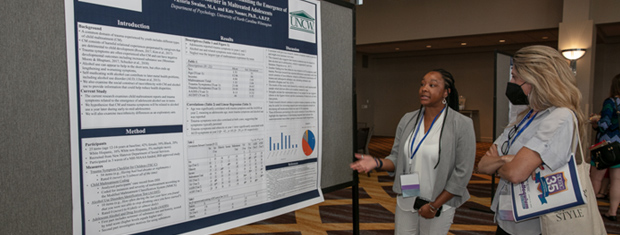




The APSAC Advisor is a peer reviewed quarterly news journal for professionals in the field of child abuse and neglect.
The APSAC Advisor provides succinct, data-based, practice-oriented articles that keep interdisciplinary professionals
informed of the latest developments in policy and practice the field of child maltreatment. It is designed to highlight
best practices in the field and publish original articles and current information about child maltreatment for professionals
from a variety of backgrounds including medicine, law, law enforcement, social work, child protective services, psychology,
public health and prevention in the U.S.
 If you wish to learn more about submitting an article to the Advisor, please click here.
If you wish to learn more about submitting an article to the Advisor, please click here.
This library contains Advisor issues dating back to the first issue in 1988. The most recent issue appears at the top.
Scroll down to select past issues by year and issue number. Once a publication appears in the box, you
can use the Enlarge button to open the document in a new window or tab (depending on how your browser is set up).
This will allow you to view the document with larger print.
To print a document, first use the Enlarge button to open the document in a new window or tab. Then use your browser's Print command.
To return here from a new tab, close the tab. To return from a new window, click your browser's Back button.
In the listing below, click on a year and issue number to see the articles in that publication.
2004 Number 3
Keeping the Balance True: Admitting Child Hearsay in the Wake of Crawford v. Washington
In a decision widely characterized as “highly favorable” to criminal defendants, the U.S. Supreme Court has interpreted the Sixth Amendment Confrontation Clause in such a manner as to undermine the ability of prosecutors to admit child hearsay statements when the child is unavailable for testimony.
Children disclose abuse to relatives, friends, and professionals. Following disclosure, legal proceedings may be commenced in criminal court, juvenile court, or family court. During court proceedings, one or more of the adults to whom the child disclosed may be called as a witness and asked to repeat the child’s earlier statements. When this occurs, however, the attorney representing the accused is likely to make a hearsay objection.
In Crawford v. Washington, the United States Supreme Court held that when an out-of-court statement of an unavailable witness is testimonial, the Sixth Amendment requires the accused be given a prior opportunity to cross-examine the witness.
The purpose of Journal Highlights is to alert readers to current literature on child abuse. Selected articles from journals representing the variety of disciplines reflected in APSAC's membership are presented in the form of an annotated bibliography.
APSAC Advisor 16(3): Full Issue